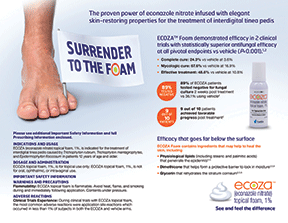RevHealth had a great year. Revenue jumped 17% to $22.3 million, driven by strong growth with existing clients such as Genentech, Merck and Ranbaxy, as well as big wins from five new clients, including Pfizer Oncology, Allergan and Pacira. All told, the agency seized 15 new brands.
Managing partner Bruce Epstein says the agency- consolidation trend is breaking down, noting business from companies like Pfizer that wouldn’t have worked with an independent agency two years ago.
“It’s much more unlikely now that as an independent agency we would be locked out of pitching and winning,” he explains. “Forcing brand managers to work with certain agencies wasn’t working. Clients are looking at methods other than consolidation to ensure efficiency, such as hours per job. They’ve also asked if we’ll match the contracts big agencies use, and we’re willing to do that.”
More than half of the firm’s business is now digital and, except for some specialized coding, everything is done in house. The agency’s medical education business has grown significantly, which surprised Epstein a bit given limitations on peer-to-peer communication. “Although clients are using peer-to-peer promotion less, we’re picking up so much business from a market-share perspective because many agencies that did that work have shut their doors.”
New med-ed wins included Genentech’s oncology products Zelboraf and Erivedge and Merck’s letermovir (antiviral) and Keytruda (oncology).
The agency landed professional AOR wins across a variety of products, including Ranbaxy’s topical steroid portfolio. Professional AOR wins from new clients included Exeltis’s dermatology portfolio, Pacira’s Exparel (postsurgical pain management) and Olympus’s endobronchial ultrasound.
New relationships also began with Allergan, which awarded professional global positioning work on Botox, and Pfizer Oncology, which awarded medical education project work.
The only account lost was Actavis’s intrauterine device Liletta, which went away in the wake of the company’s multiple acquisitions.
Staff was up 10, to 90, last year. Don Nelinson, PhD, joined as EVP and general manager to take the reigns of First Amendment, the agency’s med ed division, from Epstein, who was spread thin as the agency continued to grow.
About 20 people were promoted in 2014, which was a highlight for Epstein. “Our culture is all about teamwork,” he says. “People here don’t backbite. Everyone helps everyone else grow.”
There are 103 full-time employees and the agency expects to outgrow its current office space, which was built in 2012 to accommodate 125.
Epstein is a R.Ph. and a visiting assistant professor at Rutgers University’s Ernest Mario School of Pharmacy, and he draws heavily from that talent pool. The agency also hires people with English, journalism and art degrees into account coordination before moving them on to copywriting and art.
It’s shaping up to be another significant growth year. The agency has won multiple brands from two new clients, including a med-ed AOR assignment on what Epstein describes as a “big product from a big pharma company” that moved the business from an agency network.
“We’re also seeing a lot of opportunity in medical affairs,” he adds. “We have more than 19 MDs, PharmDs and PhDs on staff. That positions us very well to support clients’ medical affairs departments.”
From the July 01, 2015 Issue of MM+M - Medical Marketing and Media








